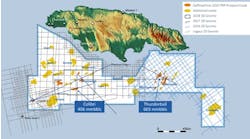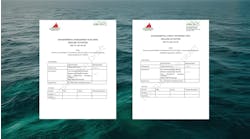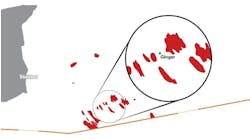Offshore staff
DOHA, Qatar – Qatar Petroleum (QP) has committed to a fourth liquefaction train to increase the capacity of its Qatar LNG expansion project, supplied by gas from the offshore North Field.
This will increase the country’s production capacity by around 32 MMt/y of LNG, and 260,000 b/d of condensate.
QP President Saad Sherida Al-Kaabi said that although the original plan, announced last year, had been to develop more gas from the field with a further three LNG trains, strong recent results from offshore appraisal and testing justified a fourth train, which will be included in front-end engineering for the project.
On completion of the program, Qatar’s production capacity will rise from 4.8 to 6.2 MMboe/yr, and its LNG capacity to 110 MMt/yr.
Later this year QP expects to award the EPCI contract for the new offshore wellhead platform jackets, and development drilling will begin shortly. Chiyoda in Japan is working on the design of the new onshore facilities.
Giles Farrer, research director, global gas and LNG supply at Wood Mackenzie, commented: “Since announcing the lifting of itsNorth Field moratorium, Qatar has gradually scaled up its development plans. Its motivations for this latest move are likely to be informed by a number of considerations.
“Firstly, costs. With worldwide activity in the oil and gas industry still low, now is a good time in the cost cycle to invest in a new project. And there are likely to be economies of scale from developing a bigger project, particularly in light of the promising appraisal results at the North Field…
“These economies of scale will make what is already the most competitive new LNG project worldwide even cheaper.”
Wood Mackenzie had estimated capex of around $24 billion for the initial three mega trains previously, covering the upstream and liquefaction components. Qatar could probably add the additional train without significant capex add-ons, Farrer suggested.
“However, making sure megaprojects are delivered on time and on budget will be a huge undertaking. Another consideration is market share.
“Since Qatar announced its initial plan, the market environment has improved. Forecasts of future oil prices are higher and forecasts of future LNG demand have grown stronger, particularly in Europe and China…
“Further, one of Qatar’s major competitors for new supply development - US LNG - is currently engaged in a tariff war with China, the world’s largest growth market for LNG. Qatar could see this as an opportunity. It has recently signed a contract doubling the volumes that it will sell to PetroChina and is likely to be looking at further opportunities to supply the Chinese market.”
Farrer concluded that another train could also mean another partnership opportunity, to further QP’s international growth ambitions. “We expect partner selection for the megaprojects to be completed sometime in summer 2019.”
09/27/2018


